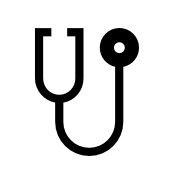5.11: Clear and Complex Language
- Page ID
- 16532
\( \newcommand{\vecs}[1]{\overset { \scriptstyle \rightharpoonup} {\mathbf{#1}} } \)
\( \newcommand{\vecd}[1]{\overset{-\!-\!\rightharpoonup}{\vphantom{a}\smash {#1}}} \)
\( \newcommand{\dsum}{\displaystyle\sum\limits} \)
\( \newcommand{\dint}{\displaystyle\int\limits} \)
\( \newcommand{\dlim}{\displaystyle\lim\limits} \)
\( \newcommand{\id}{\mathrm{id}}\) \( \newcommand{\Span}{\mathrm{span}}\)
( \newcommand{\kernel}{\mathrm{null}\,}\) \( \newcommand{\range}{\mathrm{range}\,}\)
\( \newcommand{\RealPart}{\mathrm{Re}}\) \( \newcommand{\ImaginaryPart}{\mathrm{Im}}\)
\( \newcommand{\Argument}{\mathrm{Arg}}\) \( \newcommand{\norm}[1]{\| #1 \|}\)
\( \newcommand{\inner}[2]{\langle #1, #2 \rangle}\)
\( \newcommand{\Span}{\mathrm{span}}\)
\( \newcommand{\id}{\mathrm{id}}\)
\( \newcommand{\Span}{\mathrm{span}}\)
\( \newcommand{\kernel}{\mathrm{null}\,}\)
\( \newcommand{\range}{\mathrm{range}\,}\)
\( \newcommand{\RealPart}{\mathrm{Re}}\)
\( \newcommand{\ImaginaryPart}{\mathrm{Im}}\)
\( \newcommand{\Argument}{\mathrm{Arg}}\)
\( \newcommand{\norm}[1]{\| #1 \|}\)
\( \newcommand{\inner}[2]{\langle #1, #2 \rangle}\)
\( \newcommand{\Span}{\mathrm{span}}\) \( \newcommand{\AA}{\unicode[.8,0]{x212B}}\)
\( \newcommand{\vectorA}[1]{\vec{#1}} % arrow\)
\( \newcommand{\vectorAt}[1]{\vec{\text{#1}}} % arrow\)
\( \newcommand{\vectorB}[1]{\overset { \scriptstyle \rightharpoonup} {\mathbf{#1}} } \)
\( \newcommand{\vectorC}[1]{\textbf{#1}} \)
\( \newcommand{\vectorD}[1]{\overrightarrow{#1}} \)
\( \newcommand{\vectorDt}[1]{\overrightarrow{\text{#1}}} \)
\( \newcommand{\vectE}[1]{\overset{-\!-\!\rightharpoonup}{\vphantom{a}\smash{\mathbf {#1}}}} \)
\( \newcommand{\vecs}[1]{\overset { \scriptstyle \rightharpoonup} {\mathbf{#1}} } \)
\(\newcommand{\longvect}{\overrightarrow}\)
\( \newcommand{\vecd}[1]{\overset{-\!-\!\rightharpoonup}{\vphantom{a}\smash {#1}}} \)
\(\newcommand{\avec}{\mathbf a}\) \(\newcommand{\bvec}{\mathbf b}\) \(\newcommand{\cvec}{\mathbf c}\) \(\newcommand{\dvec}{\mathbf d}\) \(\newcommand{\dtil}{\widetilde{\mathbf d}}\) \(\newcommand{\evec}{\mathbf e}\) \(\newcommand{\fvec}{\mathbf f}\) \(\newcommand{\nvec}{\mathbf n}\) \(\newcommand{\pvec}{\mathbf p}\) \(\newcommand{\qvec}{\mathbf q}\) \(\newcommand{\svec}{\mathbf s}\) \(\newcommand{\tvec}{\mathbf t}\) \(\newcommand{\uvec}{\mathbf u}\) \(\newcommand{\vvec}{\mathbf v}\) \(\newcommand{\wvec}{\mathbf w}\) \(\newcommand{\xvec}{\mathbf x}\) \(\newcommand{\yvec}{\mathbf y}\) \(\newcommand{\zvec}{\mathbf z}\) \(\newcommand{\rvec}{\mathbf r}\) \(\newcommand{\mvec}{\mathbf m}\) \(\newcommand{\zerovec}{\mathbf 0}\) \(\newcommand{\onevec}{\mathbf 1}\) \(\newcommand{\real}{\mathbb R}\) \(\newcommand{\twovec}[2]{\left[\begin{array}{r}#1 \\ #2 \end{array}\right]}\) \(\newcommand{\ctwovec}[2]{\left[\begin{array}{c}#1 \\ #2 \end{array}\right]}\) \(\newcommand{\threevec}[3]{\left[\begin{array}{r}#1 \\ #2 \\ #3 \end{array}\right]}\) \(\newcommand{\cthreevec}[3]{\left[\begin{array}{c}#1 \\ #2 \\ #3 \end{array}\right]}\) \(\newcommand{\fourvec}[4]{\left[\begin{array}{r}#1 \\ #2 \\ #3 \\ #4 \end{array}\right]}\) \(\newcommand{\cfourvec}[4]{\left[\begin{array}{c}#1 \\ #2 \\ #3 \\ #4 \end{array}\right]}\) \(\newcommand{\fivevec}[5]{\left[\begin{array}{r}#1 \\ #2 \\ #3 \\ #4 \\ #5 \\ \end{array}\right]}\) \(\newcommand{\cfivevec}[5]{\left[\begin{array}{c}#1 \\ #2 \\ #3 \\ #4 \\ #5 \\ \end{array}\right]}\) \(\newcommand{\mattwo}[4]{\left[\begin{array}{rr}#1 \amp #2 \\ #3 \amp #4 \\ \end{array}\right]}\) \(\newcommand{\laspan}[1]{\text{Span}\{#1\}}\) \(\newcommand{\bcal}{\cal B}\) \(\newcommand{\ccal}{\cal C}\) \(\newcommand{\scal}{\cal S}\) \(\newcommand{\wcal}{\cal W}\) \(\newcommand{\ecal}{\cal E}\) \(\newcommand{\coords}[2]{\left\{#1\right\}_{#2}}\) \(\newcommand{\gray}[1]{\color{gray}{#1}}\) \(\newcommand{\lgray}[1]{\color{lightgray}{#1}}\) \(\newcommand{\rank}{\operatorname{rank}}\) \(\newcommand{\row}{\text{Row}}\) \(\newcommand{\col}{\text{Col}}\) \(\renewcommand{\row}{\text{Row}}\) \(\newcommand{\nul}{\text{Nul}}\) \(\newcommand{\var}{\text{Var}}\) \(\newcommand{\corr}{\text{corr}}\) \(\newcommand{\len}[1]{\left|#1\right|}\) \(\newcommand{\bbar}{\overline{\bvec}}\) \(\newcommand{\bhat}{\widehat{\bvec}}\) \(\newcommand{\bperp}{\bvec^\perp}\) \(\newcommand{\xhat}{\widehat{\xvec}}\) \(\newcommand{\vhat}{\widehat{\vvec}}\) \(\newcommand{\uhat}{\widehat{\uvec}}\) \(\newcommand{\what}{\widehat{\wvec}}\) \(\newcommand{\Sighat}{\widehat{\Sigma}}\) \(\newcommand{\lt}{<}\) \(\newcommand{\gt}{>}\) \(\newcommand{\amp}{&}\) \(\definecolor{fillinmathshade}{gray}{0.9}\)Your choice of words while writing a paper is important because it influences a reader’s interpretation of the meaning.
Choose clear and specific words. Avoid broad and general terms, such as government or hospitals, which can be ambiguous. Use more specific language. For example, you could say “members of the provincial government” or “hospitals in urban settings.” In nursing, a common error is to homogenize clients as a distinct population. For clarity, it is best to further define what you mean, e.g., “clients with congenital heart disease.”
Some words are commonly misused in scholarly writing and lead to a lack of clarity. Here are some examples:
- Mentioned—this word usually implies something that was briefly referred to. It is better to use words like: described, discussed, or stated (e.g., “Matchu et al. stated that moral distress is experienced more by novice nurses”).
- Several—this word generally refers to three of something as opposed to a couple, which refers to two of something.
- Proves—in nursing, this word indicates that you have evidence that supports the claim. Unless the claim is statistically proven with high quality evidence, it’s better to use words like: indicates or suggests.
- Correlates—in nursing, this word refers to a relationship between two things that is supported by statistical data; otherwise, it’s best to use words like “corresponds” or “is associated with”.
Table 5.3: Language to avoid in scholarly writing
| Language to avoid | Examples |
|---|---|
| Jargon
Refers to language, abbreviations, or terms that are used by specific groups, typically people involved in a profession. Using jargon within that group makes conversation simpler, and it works because everyone in the group knows the terms. The problem with using jargon when writing is that if your reader has no idea of what those terms mean, you’ll lose them. If you decide jargon is useful based on your audience’s knowledge, then at least explain each complex term when you first introduce it. |
Biological and social capital are influenced by material conditions. Better option: A client’s socioeconomic status influences their social relationships and health and wellness state. |
|
Colloquial phrasing Colloquial phrasing is familiar, everyday slang language. It includes informal words that often change with passing fads. Many people use slang when speaking or texting, but understanding may be limited to a specific group of people. |
On the other hand, it has been noted that the tympanic route enhances temperature accuracy. Better option: Conversely, it has been noted that the tympanic route enhances temperature accuracy. The study found that drug seekers are frequent flyers. Better option: The study found that people with addictions seek healthcare often. They made a big deal of the issue. Better option: The issue was viewed as an important problem. The healthcare team was stuck in their old ways of nursing practice. Better option: The healthcare team was comfortable with the status quo in terms of their nursing practice. |
|
Clichés Clichés are descriptive expressions that are often not understood because they have lost their original meaning due to overuse. Writing that uses clichés lacks professionalism and original insight. |
Only time will tell whether these therapeutic interventions are effective. Better option: Further research will provide evidence about the effectiveness of these therapeutic interventions. It is important that nurses read between the lines when reading new policy. Better option: It is important that nurses look for hidden or implied meaning when reading new policy statements. |
Simpler language can help make a text available to everyone. However, overly simple language may frustrate some readers. Using more complex language allows a writer to add deeper layers of information and meaning to a text. This can work if the audience is familiar with the language being used – but if they’re not, they may find the text confusing, irritating, or even impossible to understand. Think critically about whether simpler or complex language should be used based on your audience and purpose.
Attribution statement
Content from the final paragraph and content on jargon was adapted from (with editorial changes):
The Word on College Reading and Writing by Carol Burnell, Jaime Wood, Monique Babin, Susan Pesznecker, and Nicole Rosevear, licensed under a Creative Commons Attribution-NonCommercial 4.0 International License, except where otherwise noted.Download for free at: https://openoregon.pressbooks.pub/wrd/


